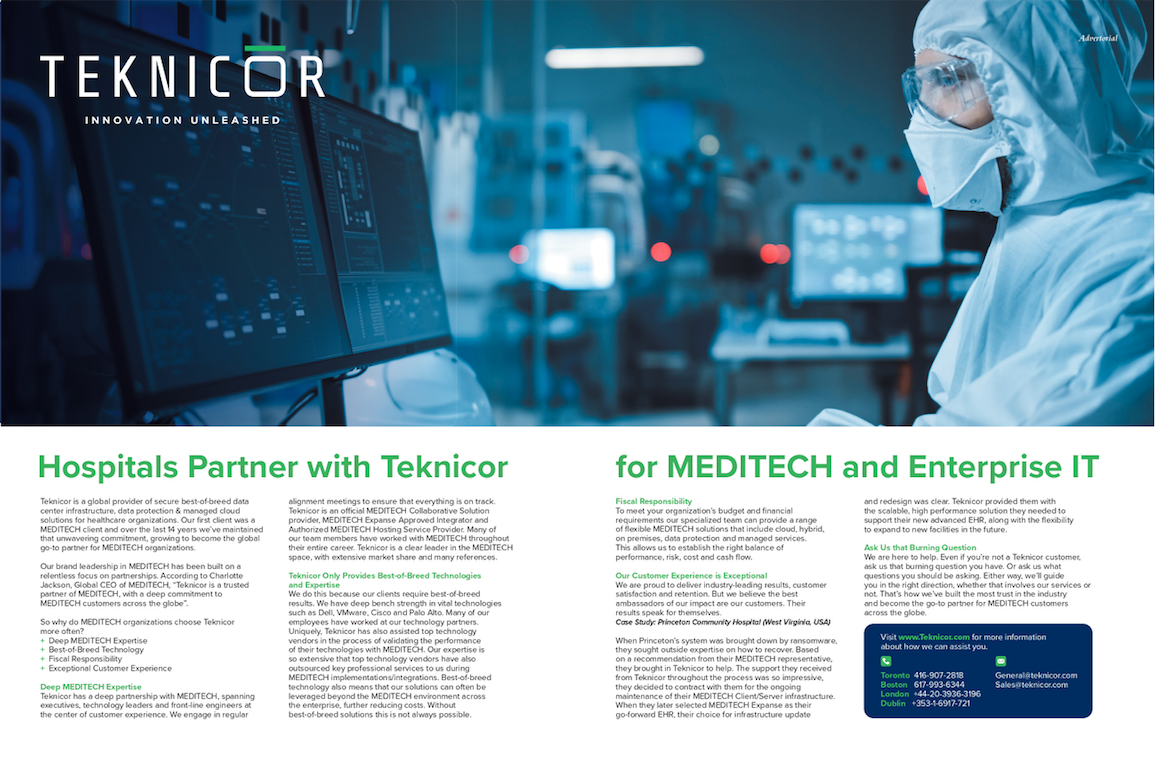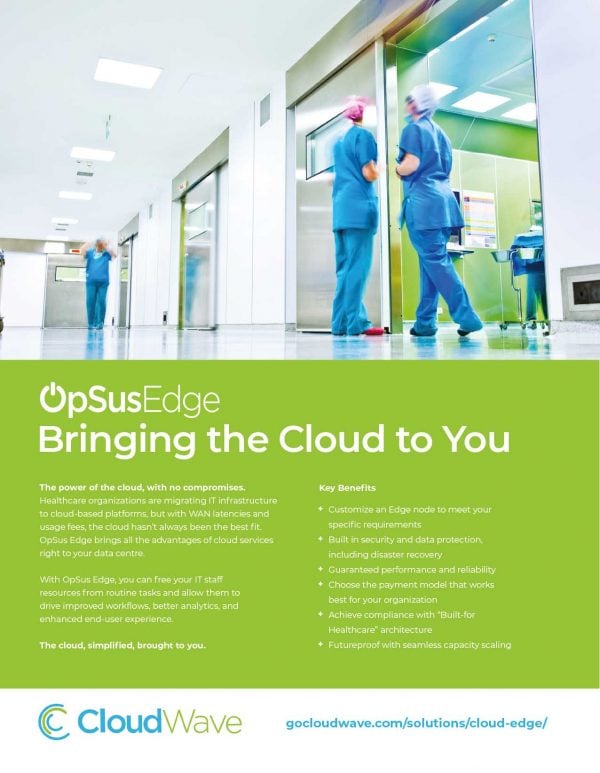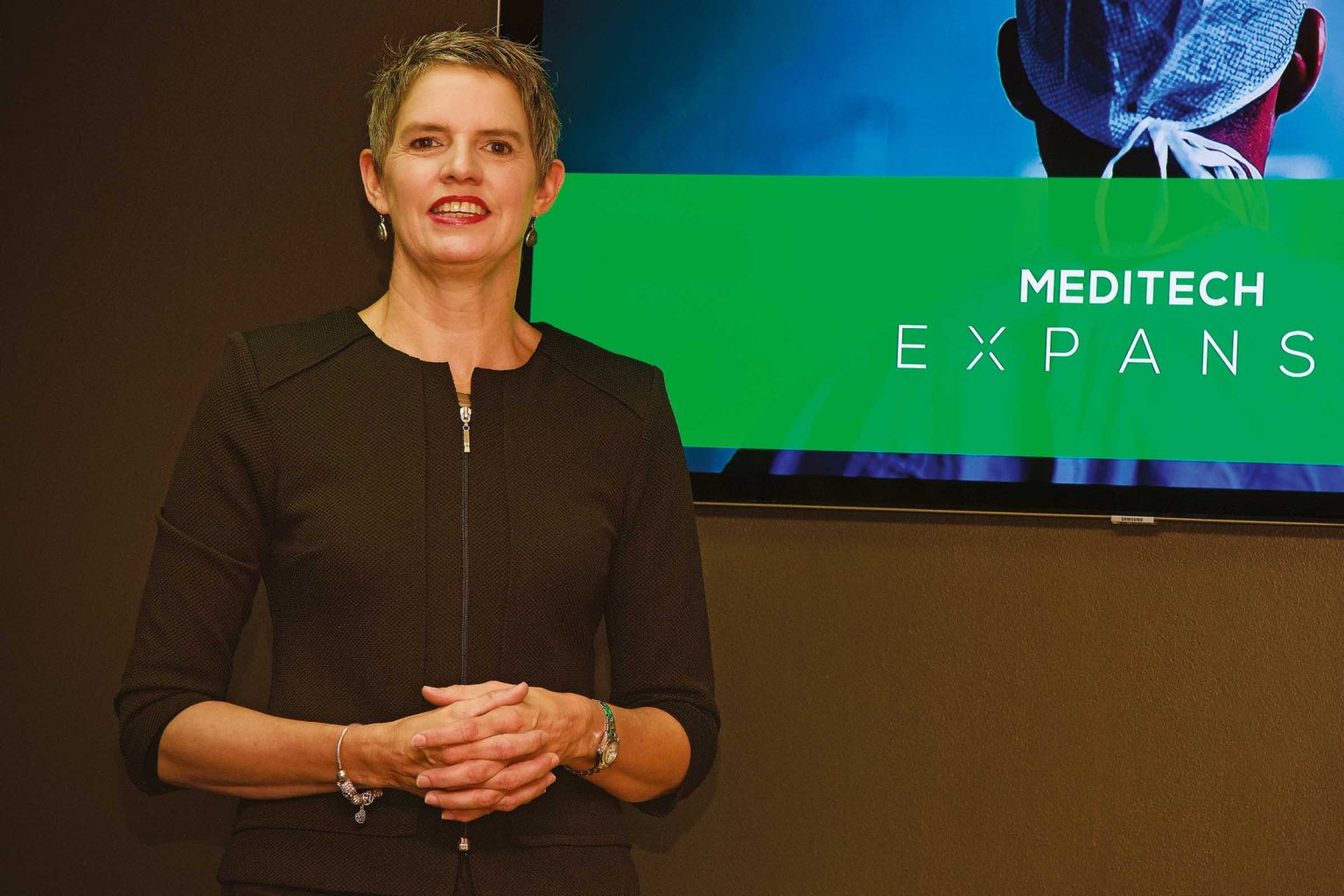During her years working for MEDITECH, a supplier of systems for storing electronic health records, Charlotte Jackson has seen how health care works around the world. But it was a visit to one of the many hundreds of sites the company supplies across Africa that sticks in her memory.
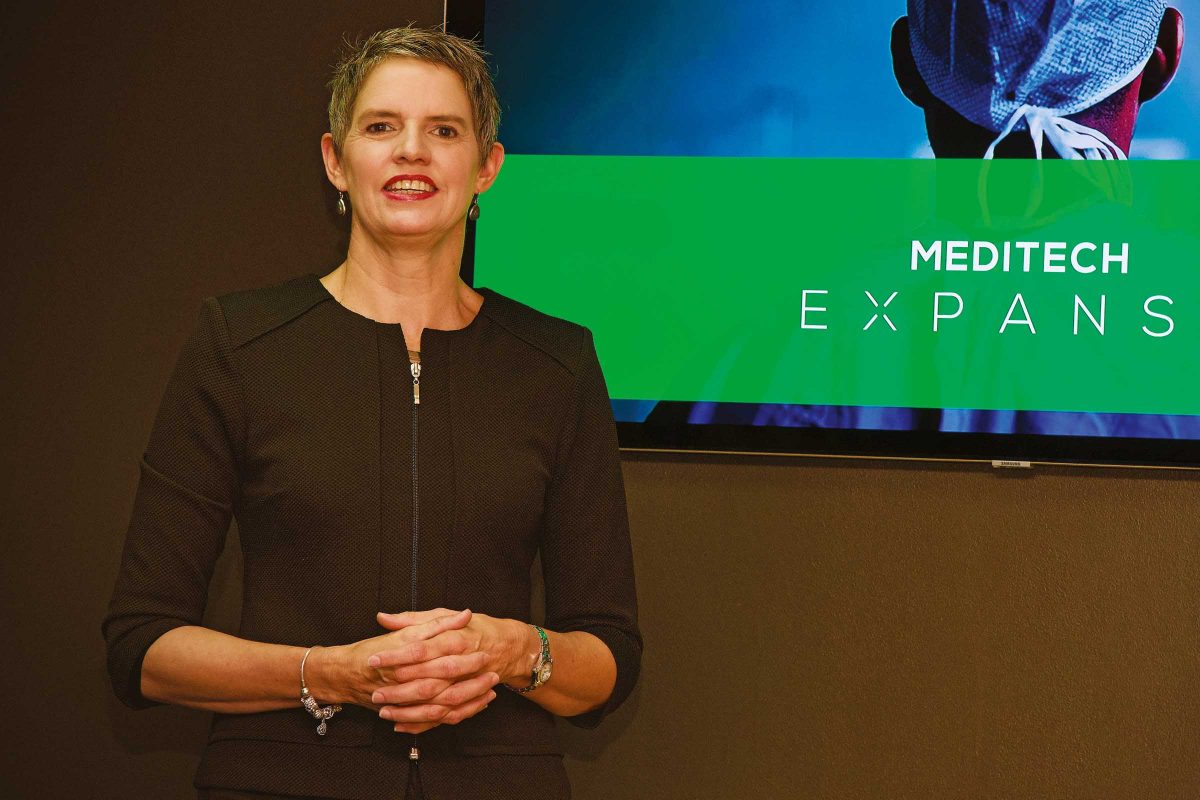
The clinic was in a remote, rural area, with little funding and no access to the local power grid, and yet MEDITECH’s high-tech software was being used there nonetheless. “I’m not kidding you, it was running on solar panels and car batteries, but it was running MEDITECH,” Charlotte recalls.
“We have put our system in there.” The US-based company sets itself apart by being highly adaptable, serving state-ofthe-art hospitals in some of the world’s richest countries as well as off-the-grid clinics in some of the poorest.
“You won’t find some of our competitors in Africa because it is too difficult a market to try and master,” explains Charlotte, who joined MEDITECH in 2011 and became Group CEO of MEDITECH International in 2017, following a unanimous vote from the board of directors.
The private company, founded in Massachusetts in 1969, builds and develops its technologies in-house, making sure it is able to provide it at a sustainable pricepoint so it can be used near-universally, from large university hospitals with sophisticated systems to a village clinic in the middle of Botswana.
“It’s the same product, but we are making sure that it doesn’t matter where you are in the world – you have access to MEDITECH,” she says.
We are making sure that it doesn’t matter where you are in the world – you have access to MEDITECH.
“Maybe you can implement it to a lesser degree based on the needs, but you are still able to get that first-world technology in a third-world environment. I don’t think you’re going to find many other first-world systems that are able to do that. That’s a big differentiator for us – it’s totally unmatched in the industry.”
MEDITECH operates in about 2,250 facilities in 23 countries, from the UK and Ireland to South Africa, Nigeria, the UAE, Australia and Singapore. Around 85% of these sites have also been customers for more than 10 years.
The company’s systems do far more than simply act as an electronic filing cabinet for doctors; its sophisticated and innovative products allow medical professionals to be better at their jobs, make pharmaceutical research easier and improve patient safety.
For example, if a physician tries to prescribe a drug not knowing the patient has an allergy to it, MEDITECH would flag that. If the doctor is struggling to recall the name of an alternative drug to prescribe, the system will offer a range of options for them to consider.
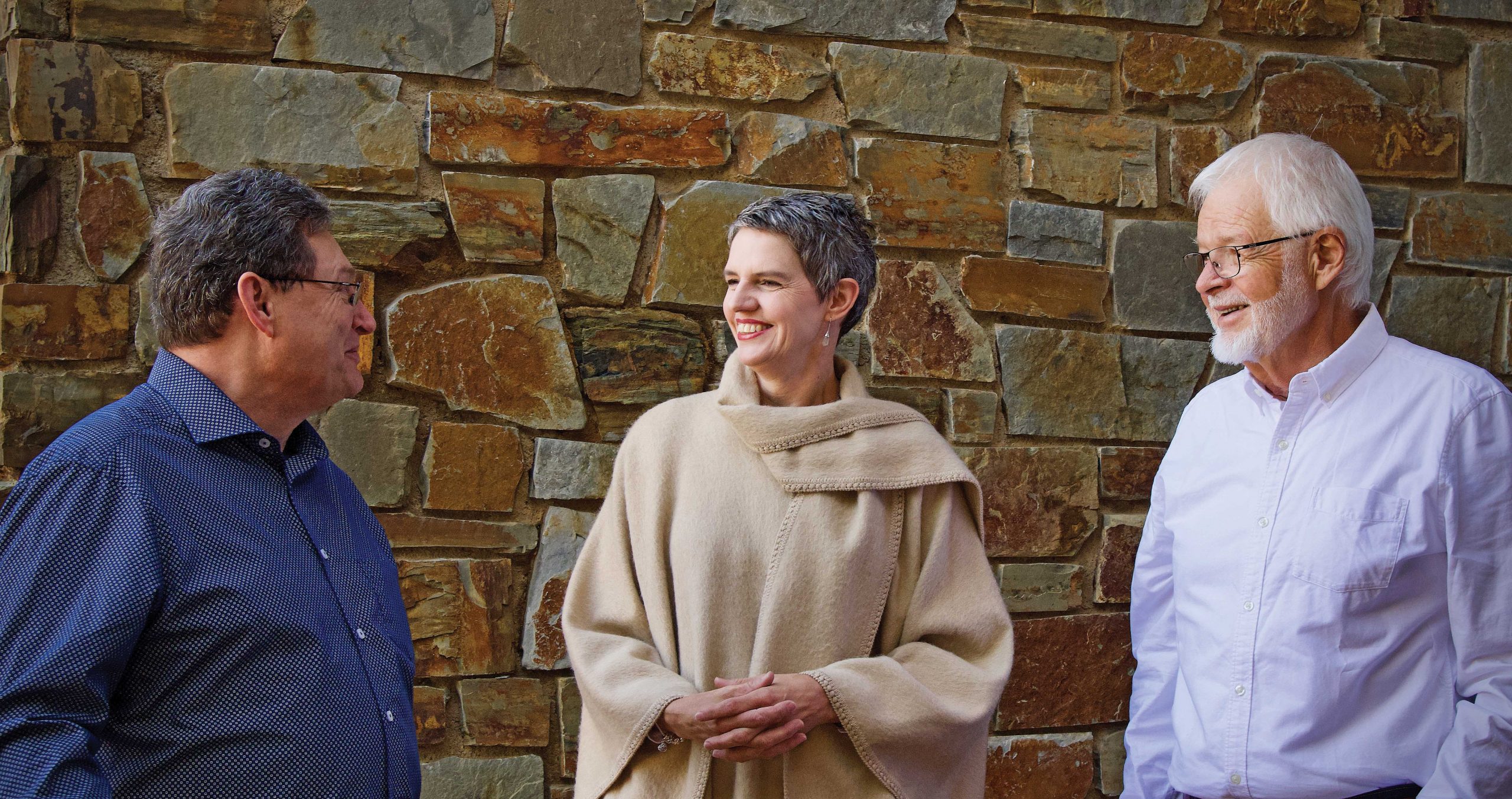
The company also provides a depression screening and suicide prevention toolkit for professionals, aimed at helping to counteract the problem of depression being underdiagnosed. Meanwhile, its mobile solutions are finally bringing health records into the modern era by giving professionals access to them on phones and tablets.
“If you think about how we, as normal consumers, use technology today, health care hasn’t really adapted quickly enough,” Charlotte points out.
“You’ve got doctors who are using a smartphone every day of their lives, and then they come into the hospital and, suddenly, there’s no mobility. It’s all done on a fixed station or they have to leave the operating theatre to go and make notes. Or they have to go to the bedside to see the patient and then have to go and make notes afterwards.”
Groundbreaking research
MEDITECH’s selling points are not just convenience and ease; its innovations free up valuable time, marking a significant change in the way medical professionals work.
“I think we have really been driving the strategy for changing the way healthcare IT is delivered around the world,” Charlotte says. “Gone are the days where your clinician really has a lot of time on their hands. We know the rat-race we all work in; you’ve got to do things quicker, better, faster. I think we’re trying to adapt to that.”
In 2019, MEDITECH partnered with Aga Khan University, an institution that provides health care to millions of people across the developing world. It was a new direction for the company, which had not previously pursued work with large researchbased hospitals.
I think we have really been driving the strategy for changing the way healthcare IT is delivered around the world.
However, the partnership is paying dividends – it will create the first integrated electronic health record system in East Africa, and it is allowing MEDITECH to make use of its technology to support groundbreaking medical research.
“They’ve found that for cancer research, a lot of the data that is used is from first-world countries that are more European-centric or more Asian-centric. So research is coming from the US or from Europe, or out of China, and that’s driving oncology decisions that are happening around the world,” Charlotte shares.
“But nobody is doing the research with Africans and Black Africans, and asking how cancer affects those population groups. This university is going to be doing a lot of cancer research around this area, so we need to make sure we’re delivering systems that will enable them to do that.”
These systems make it easier for researchers around the world to access valuable data. A researcher who wants to know how many diabetic patients in a certain hospital have presented with COVID-19, for example, would be able to cross-search for the figures on MEDITECH’s platform.
Upgrading for growth
Another focus of the company is population health, which means bringing health care into local communities in a more decentralised way, so that health and wellbeing don’t only start when you need to visit a hospital. MEDITECH is providing integrated health systems so that doctors can access patients’ records whether they are in a GP practice or an emergency department.
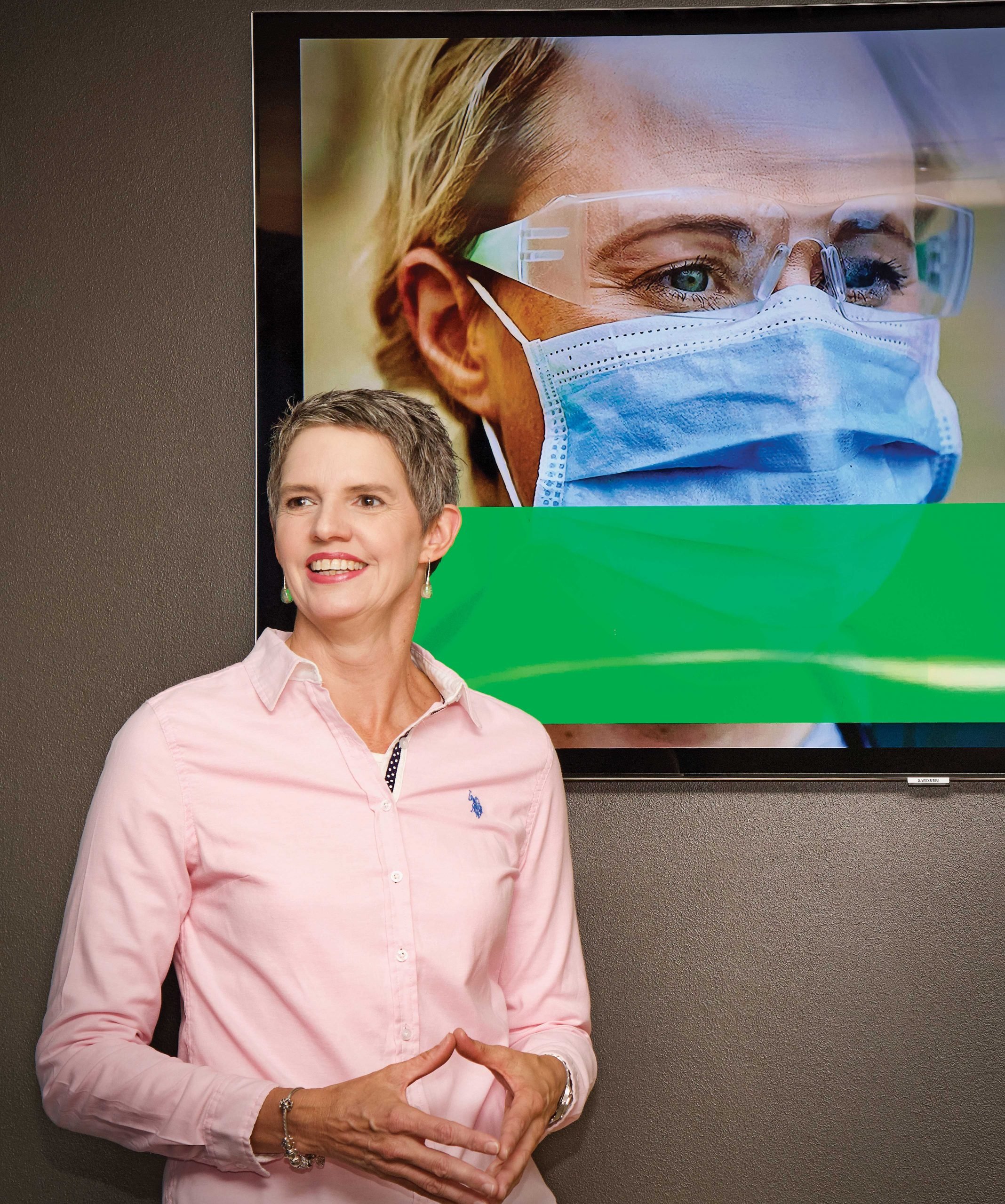
Again, the goal is to make sure the resulting product is adaptable. “So how do we provide this worldwide?” Charlotte asks. “Again, it works very differently in Australia than it does in South Africa, the UK or Nigeria, so we’re really trying to find how we can deliver care in those ways.”
Because of the huge diversity of cultures and economies she works with, one of the key leadership lessons Charlotte has learned is the importance of listening closely to customers, and never making assumptions.
“I think a lot of what companies do these days is develop the product as they think it should be deployed in these various markets, but you can’t just do that,” she insists. “What works in one market does not necessarily work in another, and you’ve got cultural, legal or demographic differences that you’re working with. If you’re just making assumptions like that, you’ll come up short.”
To avoid such pitfalls, MEDITECH seeks to involve customers in the development of its products, all the way through to their launch on the market. “It’s about how they want to take the product to market – what’s important in their area or their line of work, or their country,” Charlotte says.
“We are really listening and are intent on learning how we can remould or reinvent MEDITECH to be able to go into any country and make it work for the patient, because they’re ultimately the people you’re trying to serve at the end of the day.”
One way the company listens to customers is by organising user-driven focus groups. “We ask them what they want and what they need. And then, if we’re not going to develop it ourselves – though nine times out of 10, we will – we may go and find a third party or a partner who is able to provide it and then offer that up to the customer,” Charlotte reveals.
These focus groups help MEDITECH as it continues to invest in and expand its products and services internationally, as well as target growth in the markets where it has a foothold already, and making sure to do so with offerings that are relevant to the local context.
“It doesn’t help that you bring the latest and greatest, all-singing, all-dancing technology if you’re trying to deploy it in a country that may not even have basic health care,” Charlotte explains. The company is currently focusing on moving its existing customers from its older platforms to its newest one in the UK, Australia and Singapore.
“Even our Middle East and some of our African sites have already moved on to our latest platform,” Charlotte says. “And that’s just because they’re hiring people who are from first-world countries. You can’t bring in a first-world doctor and then expect them to have to go back in time and practise medicine like they did 30 years ago.”
Working with masters
While MEDITECH builds its systems itself from the ground up, it still relies on partners to offer a fully integrated service to its customers.
“We’re not the be-all and end-all. We work with other companies that have really gone and mastered certain things, and a lot of those companies are spin-offs that grew from something that MEDITECH decided they weren’t going to go into,” Charlotte says.
MEDITECH works with pharmaceutical companies, for example, to integrate their formularies into its own systems, including drugs available in different countries across the world and their component labels. The result is that when a consultant looks up a drug, MEDITECH presents it to them but in the background the service is being run by a third-party supplier.
“In order for us to provide that, we have to have excellent relationships and partnerships with those companies,” Charlotte asserts. The firm has also integrated partnerships with companies like Nuance, which allows clinicians to do voice dictations into MEDITECH’s systems if they don’t have time to write notes, or if they simply prefer not to.
While the systems and the technologies behind these tools are complex, they ultimately exist to make work simpler for medical professionals, which is something that Charlotte never loses sight of. “We’re creating a new standard for physician productivity, using mobility,” she says.
“The way you live your normal life, that’s how you want to work. So I think the future is about simplifying the EHR space. It’s been complicated for too many years.”
Proudly supported by:
